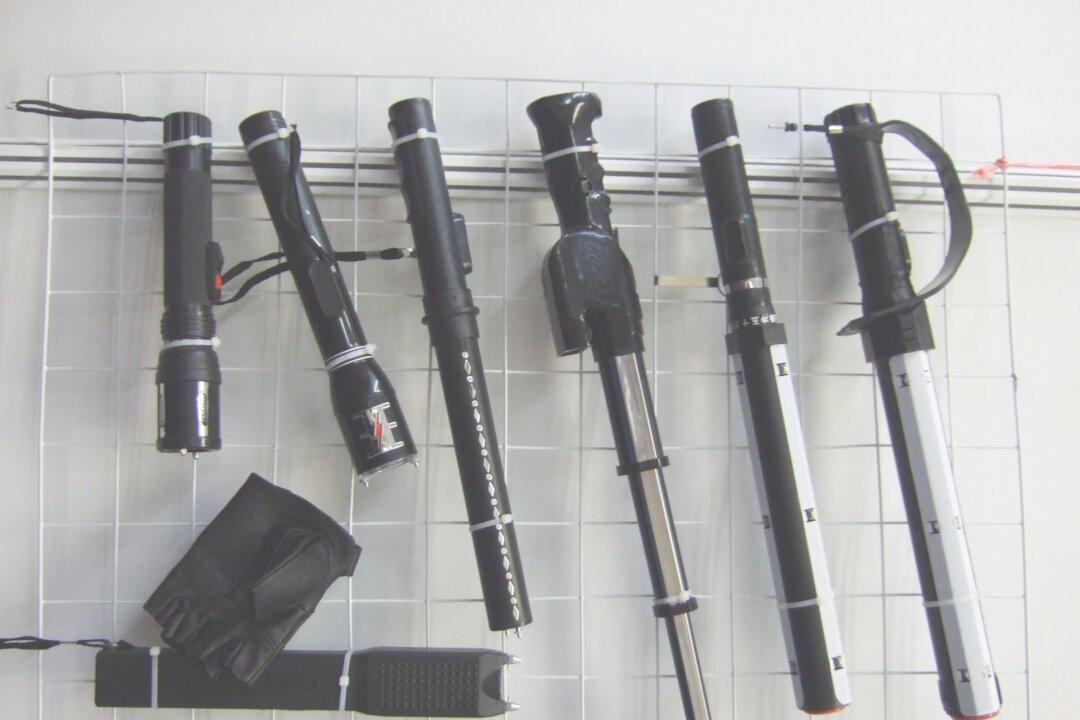The trial in Xinyu, in southeast China’s Jiangxi Province of three Chinese activists who were locked up for pressing regime officials to disclose their assets ended on Dec. 6 with no verdict handed down.
“The court hasn’t given us any information about when the verdict will be out,” lawyer Pu Zhiqiang told Epoch Times. He added, “Based on my experience, I assume that it should be out within half a month, because it’s going to be New Year soon. They will probably act on similar cases, like Xu Zhiyong’s case, before long. So Liu Ping’s case should be taken care of before those cases in Beijing.”
“Today [Dec. 10] is World Human Rights Day,” Pu said. “The human rights situation here in China is chaotic: It’s terrible—it’s deadly. I think it’s almost impossible to get acquittals for these cases. Because if the authorities acquit them, there’s no need to try them in the first place.”
“They are not guilty anyway, and they shouldn’t even have been arrested,” he said.
Last week’s closely watched court session brought unexpected developments, particularly regarding defendant Liu Ping.
“Police beat Liu while she was in the process of being detained, and also when she was held in a detention center,” lawyer Pu Zhiqiang told AFP.
“We asked the court to exclude any evidence obtained by force,” he continued, referencing recent instructions from China’s Supreme Court dealing with confession under duress.
China’s Supreme Court issued some instructions in October meant to curb the practice of extracting confessions through torture, and earlier in the year introduced means to exclude illegally obtained evidence—such as forced confessions, said Human Rights Watch. Forced confessions have given police almost 100 percent conviction rates in the past.
Defendant Liu, who has been the focus of the majority of the trial’s irregularities, was allowed to present a final statement, translated by Human Rights in China (HRIC), in which she revealed abuses and indignities at the hands of authorities.
“Time after time, what happened to me during my candidacy for people’s congress deputy startled and shocked me. I was ‘protected’ by police 24 hours a day, my mobile phone use and whereabouts were tracked, and detectors were installed outside my door. I was subjected to frequent unlawful detentions, having my head covered with a black hood, savage beatings, being tied up, strip searches, and lock-up in black jails.”
“I am innocent; every step that I have taken, it has all been in the lawful pursuit of equality, freedom, and democracy. I have put into action all that I believe in. History will declare my innocence!” she told the court.
The State Council Information Office issued censorship instructions to the media on Dec. 6, instructing editors to “delete all online news on the case of Liu Ping and the rest of the three people who held up signs in Xinyu, Jiangxi province—especially news related to the comments and actions of their lawyers. Strictly control interactive spaces,” reported China Digital Times, a U.S. based-website that keeps a close eye on China’s state-run media.
“I was trying to take pictures of the gates of the court house but was dragged by five policemen into a van,” rights defender Zhou Li told HRIC about an incident early in the week. “I was taken for questioning. Afterwards, they strip-searched me and then threw me into a cage surrounded by iron bars . . . I was locked in the cage for 25 hours.”
Before Thursday’s session, the defendant’s lawyers were held up at a checkpoint for an hour, and outside the court they were hounded by a crowd of 200 to 300 ruffians the lawyers say had been hired. The mob shoved them and shouted insults at them.
The three activists were on trial for “illegal assembly”; Wei Zhongping and Li Sihua were charged with the additional count of “gathering a crowd to disrupt order in a public place” and “using an evil cult to undermine law enforcement.”



